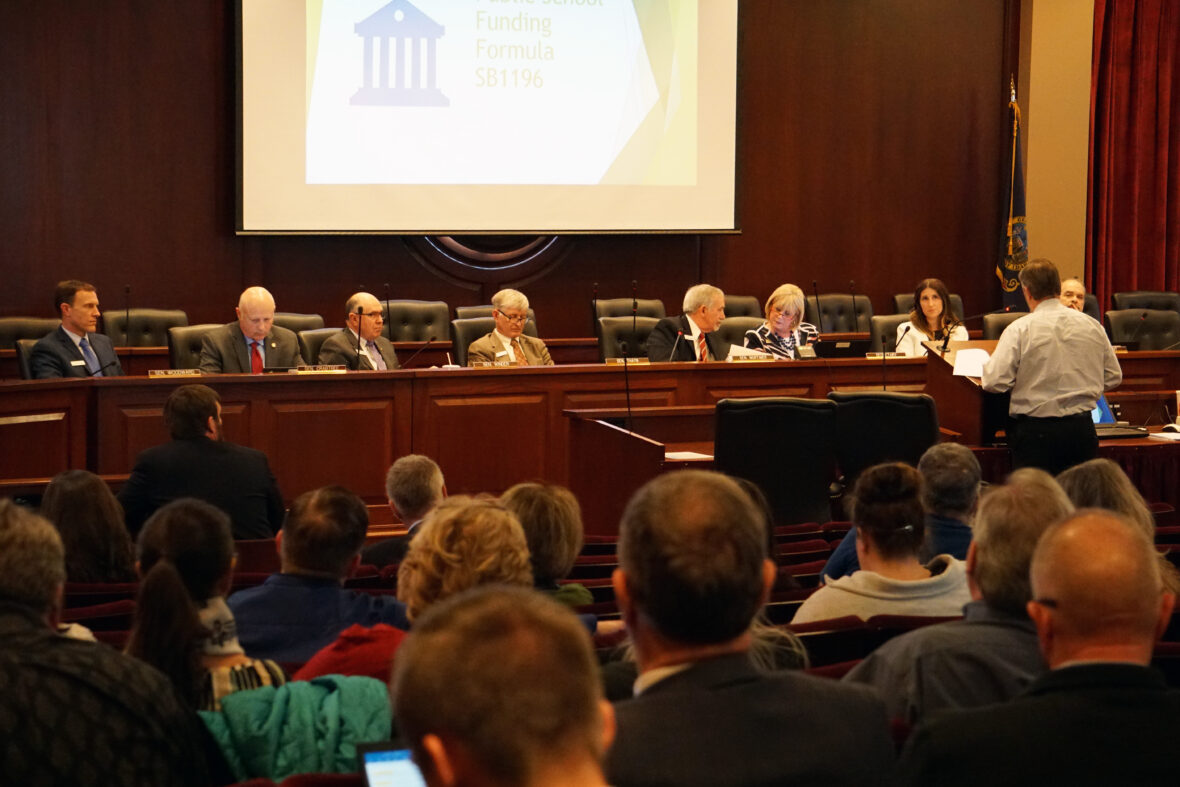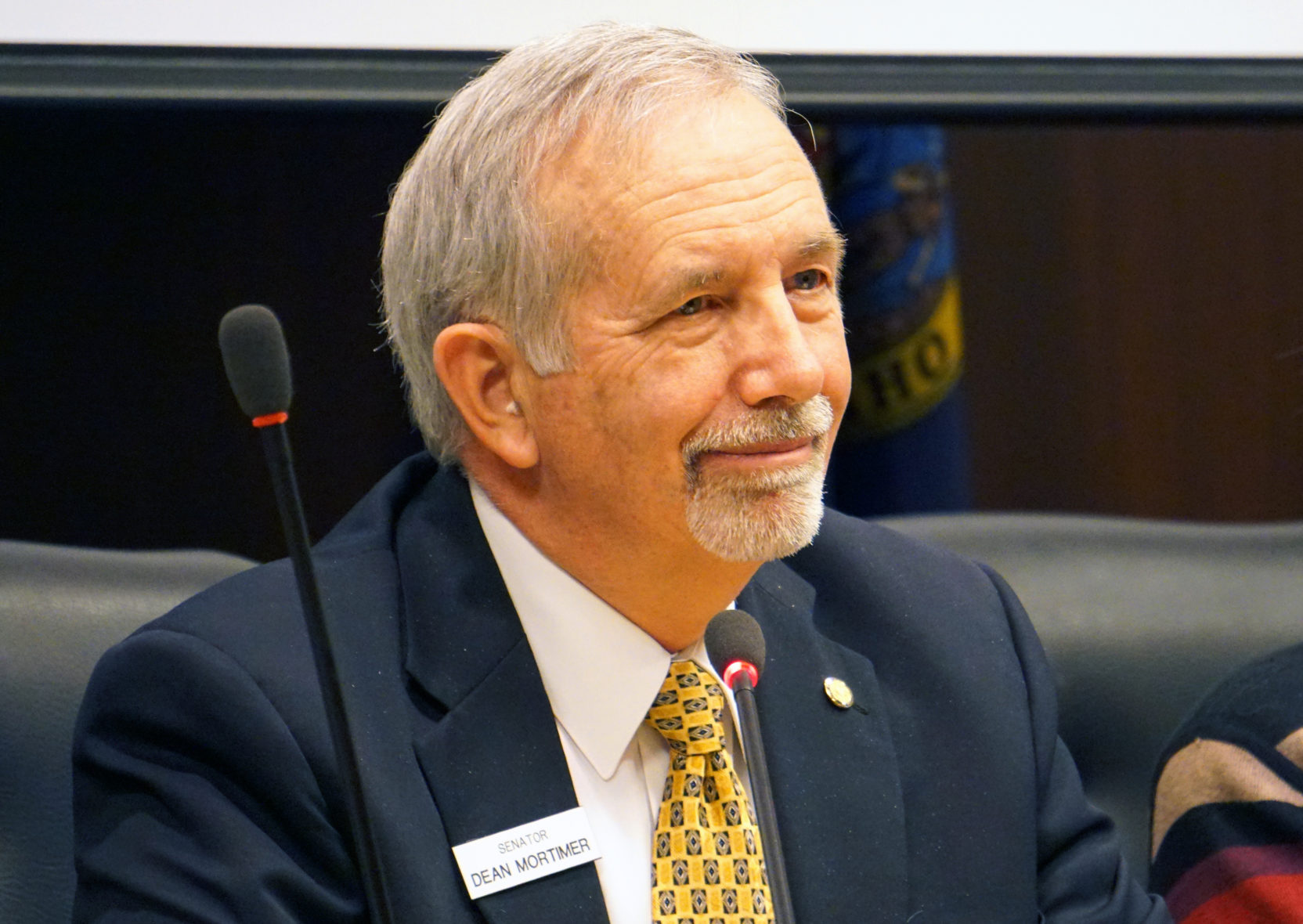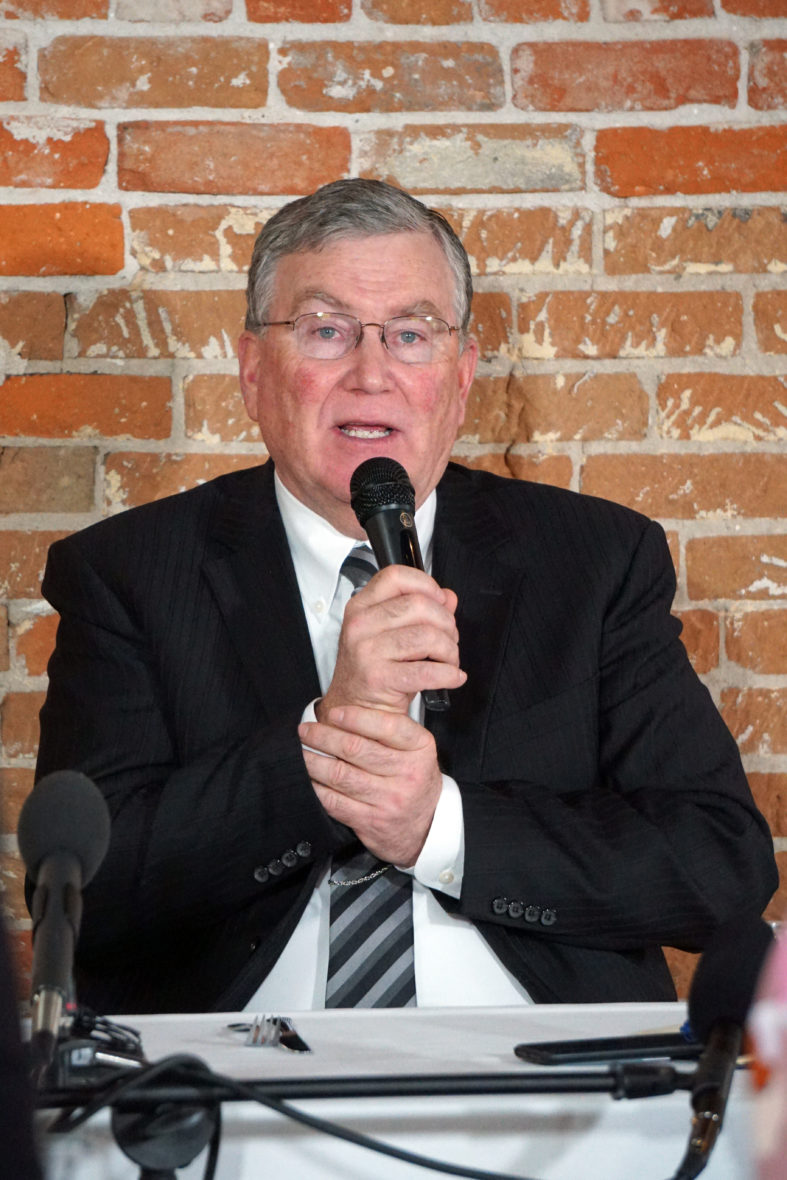
Senators are making a last-ditch run to pass an end-of-session bill addressing Idaho’s K-12 funding formula.
The bill could be introduced as early as Friday morning, Senate Education Committee Chairman Dean Mortimer said.
But the bill is much less comprehensive — and much shorter — than the sweeping proposals to rewrite Idaho’s 25-year-old school funding formula. A draft of the bill comes in at only 8 pages; the various versions of the funding formula rewrite bills exceed 60 pages.

“I would call it a definitions bill,” Mortimer, R-Idaho Falls, told Idaho Education News Thursday.
The bulk of the bill would define student groups — at-risk students, economically disadvantaged students, special education students, English language learners and gifted and talented students. Under a new formula, which bases funding on enrollment numbers, these student groups would be “weighted.” In other words, schools would receive additional funding to teach students who fall into these groups.
If the state rewrites its funding formula — in 2020, or some future year — payments to school districts and charter schools would hinge on these definitions.
What happened Thursday
It happened behind the scenes, and rather abruptly.
On Thursday morning, Senate Education was scheduled to hold a 2 p.m. meeting — one that had the look of a wrapup session. The agenda was brief: a farewell to the committee’s student page, and an end-of-year committee discussion. No bill was on the agenda — pertaining to the funding formula, or anything else.
Sometime before 2 p.m., the meeting was canceled. The move was sudden enough to catch at least one committee member off guard. First-year Sen. Jim Woodward, R-Sagle, arrived at the meeting room shortly before 2 p.m., only to learn of the cancellation.
At that time, Mortimer convened a meeting in his office to go over the legislation. Among those in attendance: Senate Majority Leader Chuck Winder, R-Boise; Sen. Lori Den Hartog, R-Meridian; and Sen. Janie Ward-Engelking, D-Boise. All four senators served on the legislative interim committee that has spent the past three summers studying the funding formula.
Also in attendance was Marilyn Whitney, state superintendent Sherri Ybarra’s legislative liaison.
Mortimer said he canceled Thursday’s committee meeting because the “definitions” bill was still in the works.
“I was hoping to have something we could discuss,” he said.
The funding formula, and the legislative endgame
Thursday’s maneuvering came as lawmakers and Statehouse observers focused their attention on two other big unresolved issues.
After a marathon debate, the House passed a bill to place work requirements and other “sideboards” on the voter-approved Medicaid expansion initiative. A Senate committee considered a competing Medicaid sideboard bill.
Meanwhile, the Senate spent much of Thursday morning in a testy battle over amending a bill to make it much more difficult to get future initiatives on the ballot.
In Statehouse parlance, Medicaid expansion is a “going-home” bill, something lawmakers must resolve in order to finish their winter’s work. Rewriting the funding formula has never been pitched as a going-home bill, since it has no real deadline affixed to it.
But after three years of study, Mortimer says it’s important to get something done in 2019.
“I don’t think it’s healthy for the process, to go home without at least these definitions in place,” he said.
Immediate reactions
The definitions bill represents “a failure by the interim committee,” House Education Committee Chairman Lance Clow said.
“(It) seems to me a bit premature if we don’t have a funding formula bill,” said Clow, R-Twin Falls.
Clow’s committee figures to play a key role in this process, since any Senate-passed bill is likely to go through House Education.
House Speaker Scott Bedke said Mortimer had mentioned something was in the works. But Bedke, a fellow member of the interim committee, said he hasn’t seen the draft of the bill, and doesn’t know the details.
“(Mortimer) was on the interim committee, he knows what he’s doing,” said Bedke, R-Oakley.
After meeting with Mortimer, Whitney said she had no immediate reaction, and said Ybarra’s staff would need to review the draft.
Lobbyists for the Idaho School Boards Association and the Idaho Education Association were reviewing the draft, and had no immediate comment.
Dysfunction and discussion
After three years of study — and extensive behind-the-scenes discussions during the first two months of the 2019 session — the drive to pass a funding formula bill has moved rapidly over the past two weeks.
Here’s the daily drama, recapped:
March 11: Defying their chairman and vice chairman, eight House Education Republicans vote to kill a funding formula bill. The 8-7 vote was unusual, since it came during a hearing to introduce, or print, the bill. Print hearings are normally brief and perfunctory, especially when a bill comes from a committee chair. Meanwhile, the Senate prints a version of a funding formula bill.

March 12: Asked about the House Education vote, Bedke chalks it up to a learning curve. Seven of the eight lawmakers who opposed the House bill are in their first or second legislative terms. “It’s an education process, (and) not enough people knew enough,” Bedke, R-Oakley, tells reporters. But Bedke, a member of the Legislature’s funding formula interim committee, says he doesn’t expect lawmakers to stay in session just to pass a funding formula bill.
March 13: The Senate prints a new, slightly rewritten funding formula bill.
March 14: Senate Education spends 90 minutes walking through the mechanics of the new Senate bill. At Mortimer’s behest, the committee doesn’t discuss the bill’s merits. The committee takes no public testimony.
March 15: As House Education wraps up its work for the week, Rep. Bill Goesling laments that the committee has no voice in the funding formula process. Goesling, R-Moscow, was one of the eight Republicans who voted to kill Clow’s bill on March 11.
March 18: House Education again stymies Clow’s attempt to print a funding formula bill. This time, the process breaks down due to a lack of a quorum. The eight Republicans who opposed Clow’s first bill sit out the committee meeting, blocking a vote.
March 18: Senate Education takes nearly two hours of testimony on its bill. Education lobbyists and school administrators urge lawmakers to go slow. Winder — a co-chair of the funding formula interim committee — says the bill is dead for the year.
March 19: Winder publicly walks back his remarks. “I was not in any way showing a lack of support for what the chair is trying to accomplish,” the Boise Republican said at the conclusion of Senate Education’s meeting.
Idaho Education News reporter Clark Corbin contributed to this report.
